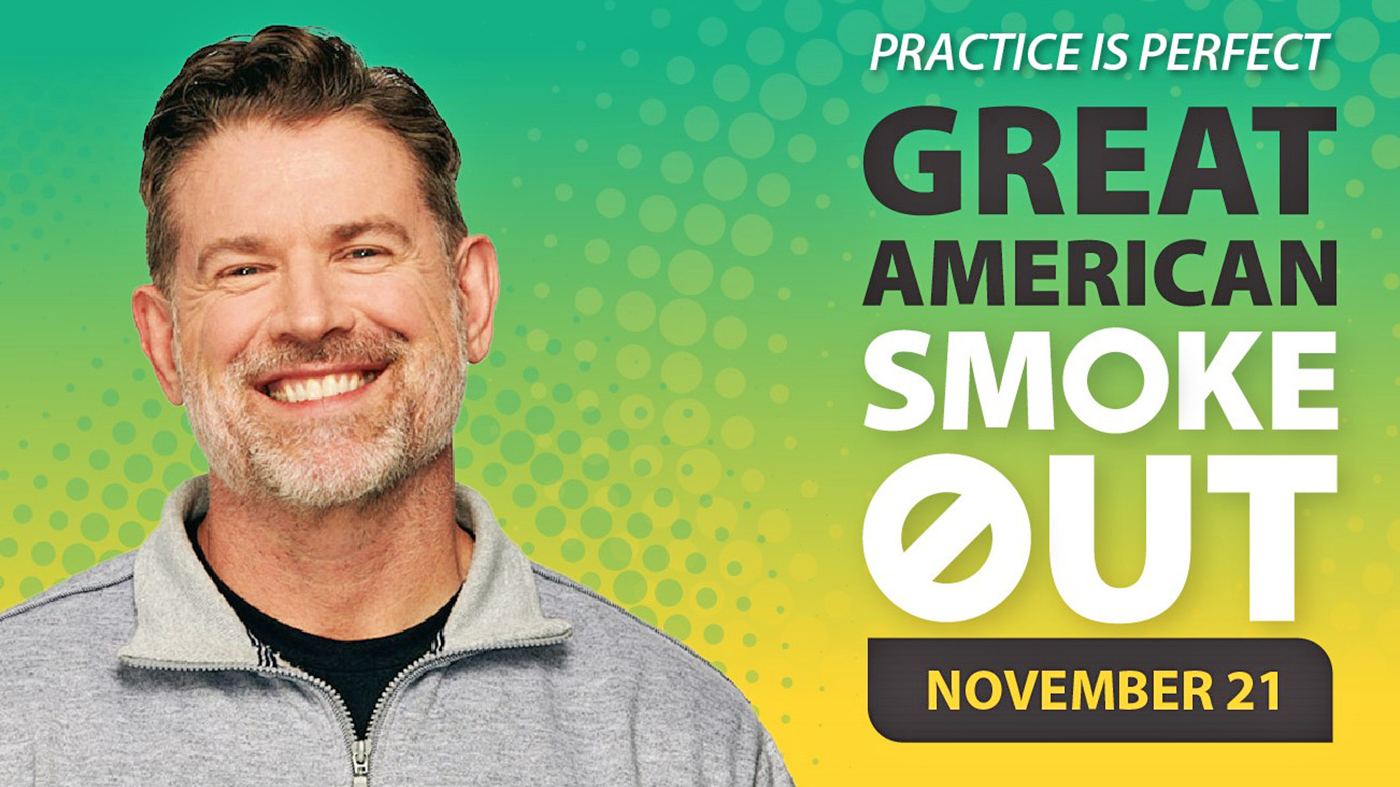Most people who try to stop smoking aren’t successful on their first try, but there’s no need for them to feel discouraged. Instead, they can think of it as practice, teaching them skills and strategies they can apply to their next try. Veterans who smoke also should be aware that VA has more tobacco use treatment options available to Veterans enrolled in VA care than ever before.
That’s why, for the Great American Smokeout Nov. 21, VA is letting Veterans know that “practice is perfect.” Every attempt is a step in the right direction. For example, Veterans may learn more about specific strategies they can use to cope with cravings to smoke, as well as what types of support and treatment are most helpful.
In 2023, 77% of Veterans who had ever smoked reported that they had successfully stopped smoking for good. More than 100,000 Veterans were able to stop smoking in 2023 alone, according to the VA Survey of Veteran Enrollees’ Health and Use of Health Care.
Start experiencing the benefits
People who stop smoking start reaping benefits immediately, and they experience many more benefits over the long term. Within two weeks of stopping, they may find they can breathe easier when doing everyday tasks like walking up the stairs. Their senses of taste and smell also may improve.
A year after stopping smoking, the risk of heart attack drops sharply. After five to 10 years, the risk of cancers of the mouth, throat, esophagus, lungs and bladder are cut in half. Stopping smoking also can improve sleep, boost the effectiveness of some anxiety and depression medications, alleviate some posttraumatic stress disorder symptoms, reduce chronic pain and provide many more benefits.
Find treatments that work
The truth is that stopping smoking isn’t easy. Nicotine withdrawal can start within a few hours of someone smoking their last cigarette. But VA provides many types of treatment and support to help Veterans manage withdrawal and overcome other obstacles. These options include prescription medications, nicotine replacement therapy (such as the nicotine patch) or gum, and in-person and virtual counseling.
Research has shown that people who smoke have the best chance at stopping tobacco use for good with a combination approach of cessation medication and behavioral counseling.
Options for getting started
- Connect with your VA health care provider—through My HealtheVet or other channels—to discuss new therapies or a combination of treatments that may work best for you.
- Call Quit VET, VA’s free telephone quitline, at 1-855-QUIT-VET (1-855-784-8838) to talk with a trained quit coach and develop a plan to stop smoking. Coaches offer support in English and Spanish.
- Sign up for SmokefreeVET by texting VET to 47848 (or VETesp to 47848 for support in Spanish). Veterans will receive tools, tips and text messages of encouragement and support.
- Visit SmokefreeVET’s website to build a quit plan.
Any time is the right time to stop smoking, whether it’s the first try or the fifth. Learn more about VA tobacco use treatment resources and how Veterans can access them.
Topics in this story
More Stories
From one battle to the next, including four types of cancers, Eliot Winokur’s resilience remains unshaken.
As severe weather threatened Mississippi, local news warned of a dangerous outbreak of tornadoes. A VA nurse stepped up.
Dorothy “Pat” Rudd, 103, World War II Navy Veteran, has lived a life of service, pioneering the way for women in the military.





